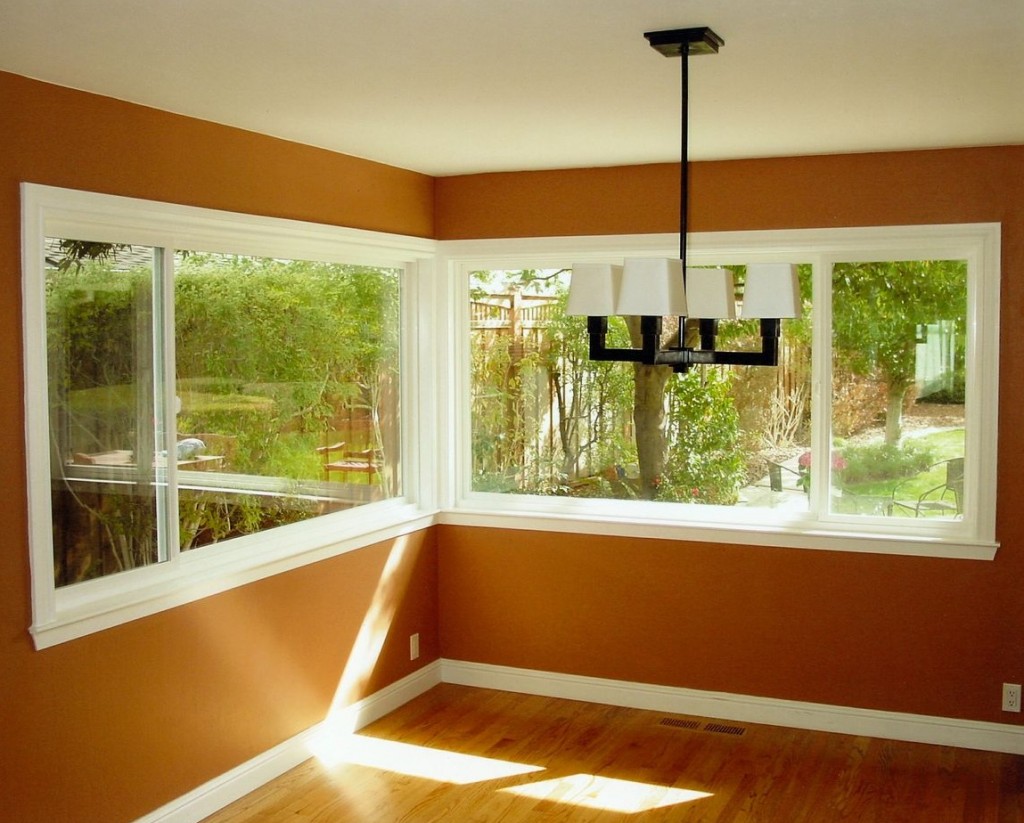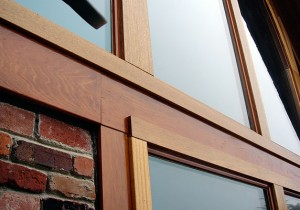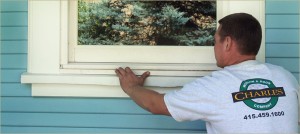
Prior to having new windows installed in your home, it’s important to get acquainted with some industry basics. Photo: Five Star Windows (2015)
Between details like framing style and glass thickness, picking the right windows isn’t as clear-cut an enterprise as it may seem. So, if you’re thinking about installing new windows in your home, it’s a good idea to get acquainted with some industry basics. The following article offers helpful information about windows and window installation, including key terms, energy efficiency tips and frequently asked questions.
Key Terms
Insulated glass: A combination of two or more glass panes with a sealed space between them. Typically, this space is filled with an inert gas such as argon, which increases the window’s insulating properties.
Low-E coating: Window glass is sometimes treated with a low-E (low-emissivity) coating, which reduces the amount of ultraviolet and infrared light that can pass through the glass without compromising visibility.
R-value: Thermal resistance to the transfer of heat through windows. Windows with a higher R-value have greater insulating properties.
Window casing: Also known as window trim, window casing is exposed molding or framing that covers the space between the window frame or jamb and the wall.
Window cladding: Material that’s applied to the outside faces of windows to provide a durable, low-maintenance exterior surface. Cladding often provides protection from the elements and adds an aesthetic touch.

When it comes to choosing window frames, your options include wood, steel, aluminum, fiberglass and more. Photo: Charles Window & Door Company (2015)
Tip Sheet: Three Ways to Make Your Windows More Energy-Efficient
1. Replace single-pane windows with double-pane. Besides improving a window’s insulating properties, modern double-pane windows can eliminate a lot of air leakage, which is a common drain on energy efficiency. Typically, upgrading from single- to double-pane windows results in a 15 to 30 percent reduction in home energy costs throughout the year.
2. Ask for argon. When purchasing new windows, ask to have an insulating agent like argon gas added between the panes. By reducing heat loss in the winter and heat gain in the summer, this odorless, nontoxic gas can substantially increase a window’s R-value.
3. Apply a low-E coating. By decreasing the amount of heat that’s allowed to pass through the glass, a low-E coating can significantly increase a window’s efficiency without diminishing its visual clarity. Additionally, since low-E filters out a large percentage of UV rays, it can increase the life of your furnishings and carpeting by shielding them from the detrimental effects of sunlight.
Frequently Asked Questions
Q: How much do new windows cost?
A: The cost of new windows varies based on the type of windows you select, the manufacturer and the number of windows you have installed. It also depends on whether you’re having replacement windows installed (windows that are custom ordered to fit in place of your existing windows) or you’re having new window frames and jambs installed as well. Your window contractor can provide an estimate based on your specific requirements.

When hiring a window contractor, it’s a good idea to choose one that’s manufacturer-certified. Photo: Charles Window & Door Company (2015)
Q: What window frame materials do I have to choose from?
A: Your choices for new window frames include wood, vinyl, steel, aluminum, fiberglass and composite. In addition to choosing a frame material that provides the look you want, it’s important to select one that has the right functional attributes. For example, metal window frames can conduct heat and cold, so they may not be as energy-efficient as wood or vinyl windows. You should also be aware that local building code regulations may limit your frame options. Ask your window contractor to help you decide which frame style and material will best fit your budget, home, and aesthetic preferences.
Q: How long will it take to install my new windows?
A: It depends on the size and scope of your job. A simple window installation may take an hour, while installing new windows throughout an entire home may take several days or a week. Your window contractor should be able to give you an estimated time frame for your specific project.
Q: What does it mean when a window installer is “authorized” or “certified” by a manufacturer? Why is this important?
A: Most major window manufacturers certify window contractors whom they have trained to install their specific products. These authorized installers also sell new windows and replacement windows. You’re likely to get a better installation, and some manufacturers even offer extended warranties on products their installers put in.
Another way to ensure a quality job is to use a Diamond Certified window contractor. In addition to the peace of mind that comes with hiring a local company independently rated Highest in Quality, all work is backed by the Diamond Certified Performance Guarantee, which gives you additional confidence in your choice.
One Response
Leave a Reply
You must be logged in to post a comment.

My wife and I going to buy some new windows, but we were hoping to find some that would be energy efficient. I liked these tips, and I have seen people using double-pane windows before to help with insulation. However, I hadn’t realized that Argon can have a large effect on a windows R-value. Thanks for sharing!